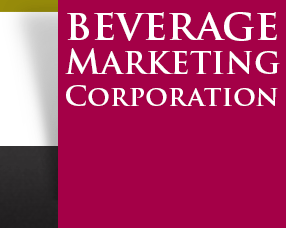IBWA Press Release: Bottled Water Sales And Consumption Projected To Increase In 2014, Expected To Be The Number One Packaged Drink By 2016
12/17/2014
Issued by International Bottled Water Association
BOTTLED WATER SALES AND CONSUMPTION PROJECTED TO INCREASE IN 2014, EXPECTED TO BE THE NUMBER ONE PACKAGED DRINK BY 2016
***
ALEXANDRIA, VA, 4 December 2014: Building on last year's growth of 4.7 percent, bottled water will again post significant increases in both sales and consumption for 2014, according to preliminary data from the Beverage Marketing Corporation (BMC). Information presented by BMC managing director of research, Gary Hemphill, during the November 2014 International Bottled Water Association (IBWA) Annual Business Conference in Dallas, Texas, points to bottled water's growing share of the packaged beverage market. (view presentation)
"While other beverages struggle to gain or maintain market share, bottled water is expected to have a 7.4 percent increase in 2014 — that equates to 10.9 billion gallons," said Hemphill. "Every segment of the bottled water industry is growing and we consider bottled water to be the most successful mass–market beverage category in the U.S.," he added. "In fact, single serve PET plastic bottled water outperformed all other beverage categories, posting an increase of 8.4 percent."
Sales of bottled water in 2014 are expected to grow to $13 billion, an increase of 6.1 percent from 2013.
Reflecting a clear trend of consumers increasingly choosing healthy, convenient, zero–calorie bottled water, BMC reported that over the past five years alone, bottled water has increased its "share of stomach" of the overall beverage market from 14.4 percent in 2009, to 17.8 percent in 2014. With 20.9 percent, carbonated soft drinks currently holds the number one position. However, BMC now predicts that by 2016 bottled water will be the number one packaged beverage sold in the United States.
"On the retail shelf, bottled water already outsells soft drinks in 17 major cities, including New York, Boston, Los Angeles, San Francisco, Las Vegas, Houston, Miami, and Washington, D.C. As overall soft drink consumption continues to decline, BMC projects that more cities will join that list," said IBWA vice president of communications, Chris Hogan.
Historically speaking, bottled water has been on a long–term upward trajectory. Between 1976 and 2013, bottled water grew at a compounded annual growth rate of 9.5 percent, outdistancing every other beverage category. On a per capita basis, in 1976 every American drank 1.6 gallons of bottled water. In 2014 that figure is projected to reach a record 34.2 gallons.
"People choose bottled water for a variety of reasons," said Hogan. "Many consumers are making healthier choices for themselves and their families, and they know that safe, convenient, refreshing bottled water has zero calories and is the healthiest option on the shelf. They also appreciate the reliable, consistent quality of bottled water. And, despite continued efforts by some activist groups to discourage people from drinking bottled water, consumption and sales of this healthy product are increasing as consumers make their voices heard in the marketplace."
Even with this continuing growth and increased consumption, bottled water still has the smallest water and energy use footprint of any packaged beverage. The results of a recent benchmarking study show that the amount of water and energy used to produce bottled water products in North America is less than all other types of packaged beverages. On average, only 1.32 liters of water (including the liter of water consumed) and 0.24 mega joules of energy are used to produce one liter of finished bottled water.
Bottled water is comprehensively regulated by the United States Food and Drug Administration (FDA) as a packaged food product and it provides a consistently safe and reliable source of drinking water. By federal law, the FDA regulations governing the safety and quality of bottled water must be at least as stringent as the Environmental Protection Agency (EPA) standards for tap water. And, in some very important cases like lead, coliform bacteria, and E. coli, bottled water regulations are substantially more stringent.
For more information about bottled water, please visit www.bottledwater.org.
New York City–based Beverage Marketing Corporation is the leading research, consulting and advisory services firm dedicated to the global beverage industry. Serving the industry for more than 40 years, the company offers more than 50 market trend reports which include in–depth studies of various beverage sectors such as Bottled Water in the U.S. as well as market reports covering a broad range of drink sectors such as Organic Beverages in the U.S. and The Multiple Beverage Marketplace in the U.S. Most recently, the launch of the company's DrinkTell™ database has provided an easy to use platform for users to access U.S. and global data on a broad range of alcohol and non–alcohol beverage categories.
###
